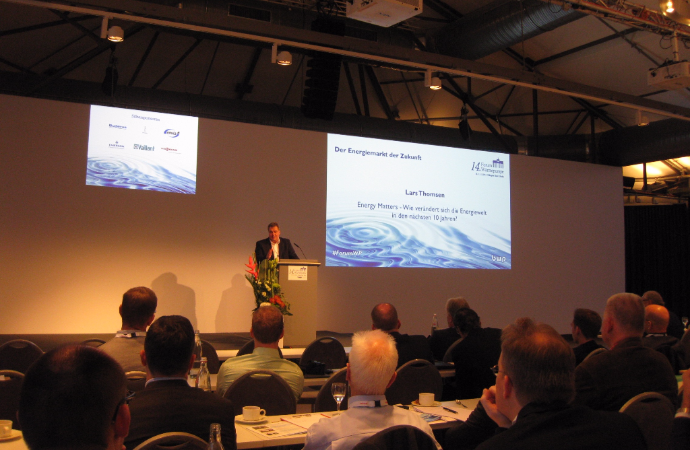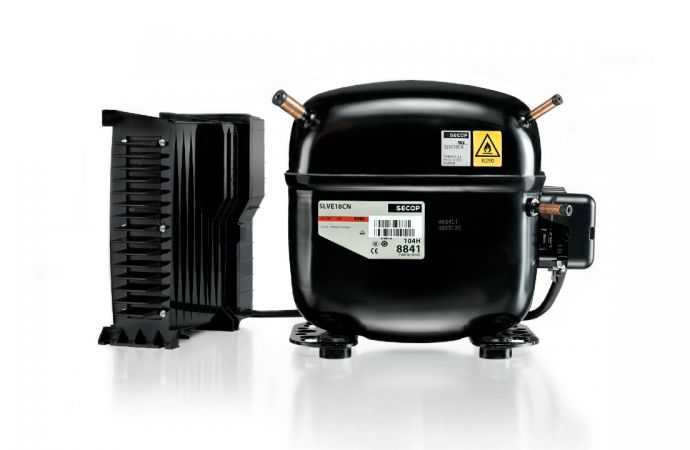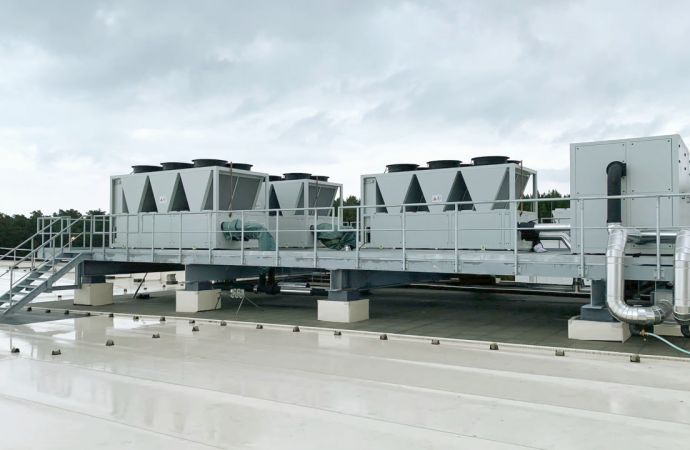Energy efficiency and Sektorkopplung – cross-sector applications – were much discussed at the 14th Forum Wärmepumpe.

14th Forum Wärmepumpe at the Ellington Hotel in Berlin
Politicians and industry representatives attending the 14th Forum Wärmepumpe at Berlin's Ellington Hotel on 10-11 November, organised by Bundesverband Wärmepumpe (BWP), identified heat pumps as a key means of delivering Germany’s climate targets.
Germany’s Climate Protection Plan 2050, published by the Ministry of Environment yesterday (14 November), introduces sector-specific targets for delivering the country’s climate goals. Already by 2030, greenhouse gas emissions in buildings are to be reduced by 66-67% with 1990 as base year in order to achieve fully climate-neutral buildings by 2050.
According to recent data from the Bundesministerium für Wirtschaft und Energie (BMWi), buildings are responsible for 35-40% of energy consumption in Germany, a large part of which is water and space heating. The heating sector is responsible for one third of overall greenhouse gas emissions in Germany, shows a study from the Umweltbundesamt (UBA).
Like boilers, heat pumps act as a bridge between electricity and heat. Combined with renewable energy sources, they can be an efficient cross-sector and climate-friendly technology. The UBA data shows that currently, renewable energies in the German heating sector are hovering at about 10-15% of the energy mix.
As the stock of renewable energy-based heat pumps increases, so does the need for flexibility and energy storage. Development of new batteries and storage will play a decisive role in the success of Germany’s Energiewende. With more intermittent energy from renewable sources coming online, storage availability is crucial to the long-term viability of the energy transformation.
In this context, heat pumps are increasingly seen as an option for space heating – a trend reflected in their rapid increase in Germany and elsewhere. For heating of new buildings, the share of heat pumps has increased from 1% to over 22% in the last 20 years. However, their share in existing buildings is still below 2%. According to Matthias Kunath, managing director at envia THERM, the future of heating will be decided in the existing building sector.
Today, no heating technology exists that can compare with the efficiency of heat pumps."
- Sean O'Driscoll, Glen Dimplex Group
An efficient and correctly installed heat pump can transform one kWh of energy into about three to four kWh of heat. “70% of the energy which a heat pump generates is free, renewable and comes directly from the environment. Today, no heating technology exists that can compare with the efficiency of heat pumps,” says Sean O’Driscoll, chief executive of the Glen Dimplex Group.
Some industry representatives are calling on governments to actively support heat pumps with financial and non-financial means. O’Driscoll compares the necessity for public policy in support of heat pumps to current support for electric mobility, another cross-sectoral technology that can reduce carbon emissions. “If support is justified for e-mobility – which it is – it is also justified for e-heat – which it is,” he said.
To fully exploit their environmental potential, Prof. Dr. Volker Quaschning from HTW Berlin – the University of Applied Sciences – called for heat pumps to exclusively use climate-friendly refrigerants.
Reacting to the Kigali deal amending the Montreal Protocol in pursuit of a global HFC phase-down, BWP Managing Director Karl-Heinz Stawiarski hailed the potential for natural refrigerants to replace HFCs in the heat pump sector.
Related stories




